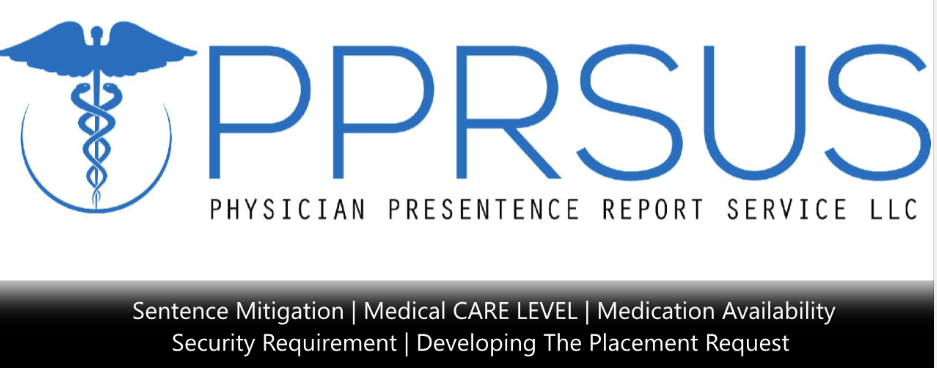Take Ownership of Your Defense – What Happens When You Don’t
I wanted to do this podcast on a phone call that I had earlier this morning. Someone who has a disease and is on medication., and yet his attorney had not prepared all his medical records – or any of his medical records for his PSR and sentencing hearing.
Hello and welcome My name is Marc Blatstein – and I’m the Physician who found Physician Presentence Report Service (PPRS)
Speaking with him this morning, I was taken aback to learn that: he had already been sentenced. Here I was trying to ask questions and learn how it was he was sentenced with an incomplete pre-sentence report. – That didn’t make any sense.
But. If the information I learned was accurate, his presentence report was incomplete.
The person’s main concern was that his medication did not appear available on the BOP online Formulary. Initially, I must give credit to this gentleman and his wife (who is in school to be a nurse practitioner). They recognized that the medication was not on the formulary, which is not an easy thing to read.
As he was to surrender in the next 45-60 days, my recommendations were to meet with his treating physician to:
· Get copies of “all” his records
· Copies of his prescriptions
· Review the BOP Formulary with his physician to see if there were any acceptable medications to substitute.
· If Yes, he needs to get a copy of this new notification regarding a medication change, due to the BOP Formulary
- Get a hard copy of the prescription and fill it.
· If No, and this is a Continuity of Care and/or life-threatening issue, then appearing in court at the Sentencing Hearing is preferred as Judges would usually like to question the Specialist. The challenge – he has already been sentenced, so I suppose he will call me back…
While I hope this Case Is rare, it points out that every defendant, once you’re indicted, needs to take ownership of all aspects of their defense.
Then Be honest with yourself (and your attorney) regarding all the facts of the case, then, start interviewing attorneys.
· Ask for referrals to see speak to some happy clients, then.
· Ask to read some of their sentencing memorandums, in cases like yours.
· The goal is to see if they’re the same or if each is individualized – In the same Criminal defense space.
· If the attorney says this is private information, which is understandable.
· You agree, and then request that they block out all personal information.
Then you just can’t assume that the attorney is going to do everything right – which is why I am doing this podcast.
- This must be a partnership with your attorney.
So, what does that mean? This partnership extends into preparation for the Presentence Interview, which will impact your future.
The short version is that the probation officer’s responsibility is to Interview you., Investigate, and then draft the Presentence Report (PSR).
- They then provide that PSR to the judge, along with their recommendations for your sentence and placement.
Part I) How do you take Ownership?
First. Your attorney
Reaches out to learn who your probation officer is, and then contact them.
Assume that the probation officer has Googled you &/or spoken to the prosecutor. Because if they have, then they may already have a bias Against you,
Why, because the Justice Department has already released all the information about you that makes you look horrible.
1st So this first step, your attorney reaching out to the PO Sets the Tone
- For Your Defense, it allows them to hear from
- you first before they’ve been
- tainted by others’ perceptions of who you are.
This allows them to make their case regarding their defense strategy, on the record – to the PO. This is followed by a very organized, detailed letter that details this strategy.
They will also Ask the probation officer:
- what documents they will need at the time of the interview.
- What date is best for them to do the pre-sentence interview?
- And what is their final dictation Deadline date to have their official pre-sentence report due to their supervisor?
2nd Review with your legal team that all the information you have collected, to ensure all your background information is available and accurate
3rd The PO has scored your Public Safety Factors (PSF), Management Variables, Criminal History Score, Offense Level (current charges), and FSA Programs,
- Be prepared, so should you and your attorneys
4th RDAP Eligible, Then INCLUDE It.
5th Don’t try for a CARE LEVEL III or IV unless it is required because it houses both violent and non-violent offenders
Part II) How do you take Ownership?
You, as the defendant has jobs.
1st You must collect All of your biographical background information.
Copies of all your medical and mental healthcare records and your physician’s contact information (name, Phone number, address, e-mail.)
Copies of all surgery reports, medication prescriptions, and medical devices.
· If you’ve had any hospitalizations, copies of those records.
· If you’ve had any sort of laboratory blood test, copies of those, or X-rays, CT scans, MRI scans, PET scans, or ultrasounds, all of those will have reports associated with them. You need to get copies of everything.
- You should also get them on CDs.
· While you’re doing this, it’s been my impression that most people don’t have a copy of their medical records. Therefore, it would be simpler if you asked for two copies of everything from each provider of all these documents.
Next, you will have to get copies of your birth certificate, driver’s license, Social Security card, and passport.
Also, the highest level of education that you’ve achieved, if you’ve been in the military, what’s the highest rank you had, and what type of discharge? Any certificates – include them.
Character reference letters.
Those writing character reference letters (or references about your character) must include that they know you’re facing a criminal charge.
- They should reference good deeds that they have seen you do, tutoring, and volunteering.
- It also could be letters from former employers who say they know you are willing to rehire you. A VERY BIG DEAL
2nd Your Personal Narrative – takes work, and starts with writing your life story, the good, the bad, and the ugly.
- If it starts a book, great, it will be re-written, multiple times and distilled until it represents
· You- YOUR REMORSE TO THE VICTIMS – HOW YOU GOT TO THIS POINT = NOT TO BE REPEATED
3rd Reentry Planning: Starts now, extending through the prison, RRC, and supervised release
When I was sentenced – I WAS UNPREPARED
This is why I was concerned during this conversation, and my recommendations were simple:
· Meet with your doctor and let them review the BOP Formulary Drug List for a substitution
- Get copies of all of his medical records, lab tests, surgery reports, physician contact information, and all of the X-Rays, CTs, MRIs, Ultrasounds, and any other scans both in a report form and on CDs
- Put them in a big envelope, labeled legal mail for his surrender
· Don’t forget about Your Personal Narrative and Allocution
This is why it’s important to participate in your defense – I sympathize with those who like me, were “The deer in Headlights”
- But the “Symbolic Act” of participating in your defense, that
- “taking back Control” will begin to slowly build the Confidence back that made you the success that you are
REMEMBER – THIS IS TEMPORARY
Dr. Blatstein
240.888.7778

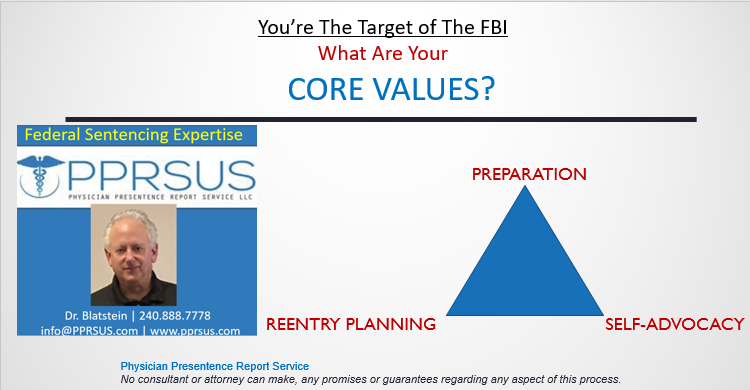

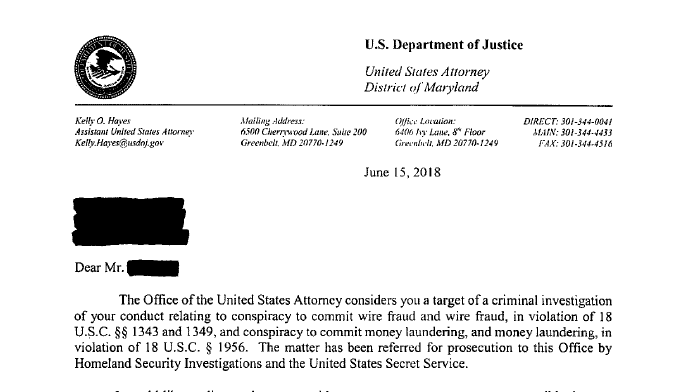


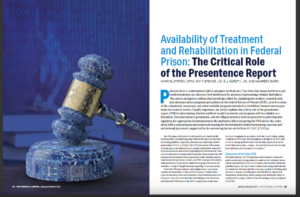

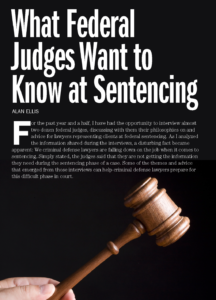 very impressed with lawyers who show legal advocacy in their presentence memorandum ondisputed guideline issues. I appreciate lawyers who give me everything I need well in advance of the hearing.”
very impressed with lawyers who show legal advocacy in their presentence memorandum ondisputed guideline issues. I appreciate lawyers who give me everything I need well in advance of the hearing.”
